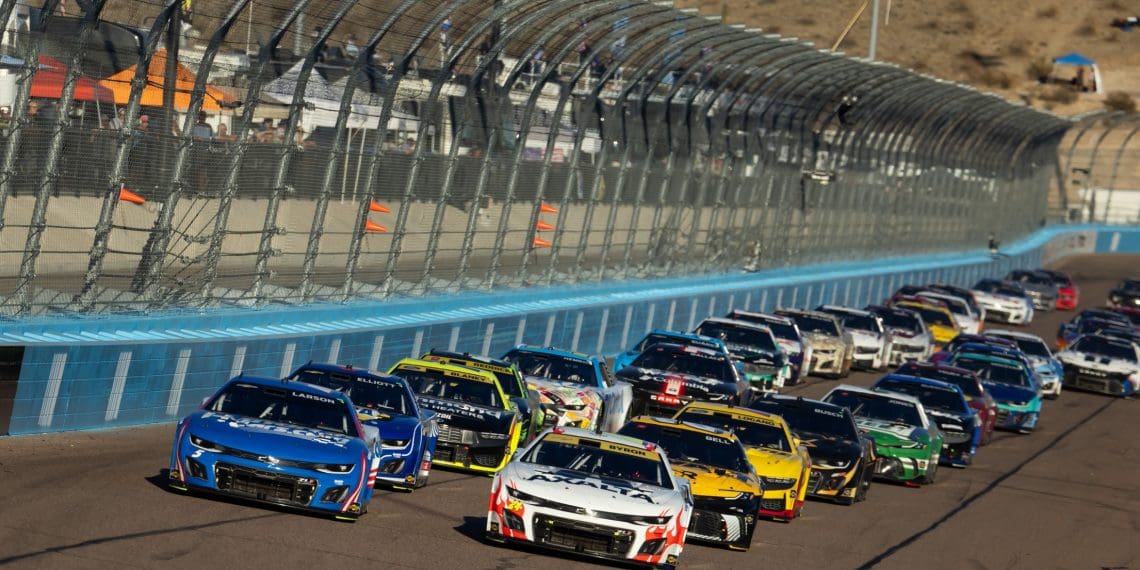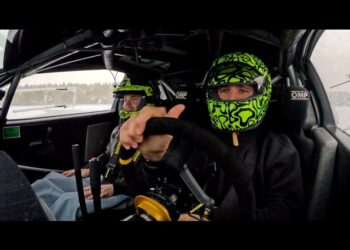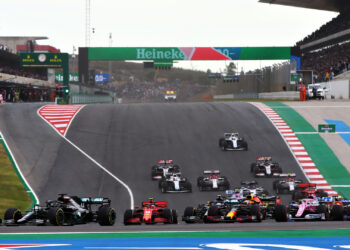NASCAR, once the undisputed leader in American motorsports, is now facing an uphill battle to retain its position as a dominant force in the industry. With the meteoric rise of Formula 1 in the United States, fueled by three marquee events—Austin, Miami, and Las Vegas—the allure of F1 has extended beyond fans, capturing the attention of NASCAR’s long-standing OEM partners.
F1’s aggressive expansion: A direct threat to NASCAR’s OEM relationships
Ford, Toyota, and General Motors, NASCAR’s stalwart manufacturers, are now entrenched in Formula 1. Ford has confirmed its F1 entry for 2026, Toyota collaborates with Haas F1 as a technical partner, and General Motors will debut in 2025 with its Cadillac entry. This strategic pivot raises concerns about whether their growing F1 commitments could detract from their NASCAR investments—or even result in a complete withdrawal.
The implications for NASCAR could be seismic. These manufacturers are pillars of the sport’s identity, contributing not just cars but significant financial resources and brand value. Their potential exodus would be a devastating blow to NASCAR’s sustainability.
A fourth OEM on the horizon—but will it be enough?
Rumors of Honda entering NASCAR as a fourth OEM have circulated for months. However, before welcoming a new partner, NASCAR must address the looming challenges of retaining its current trio of manufacturers. The underlying concern is clear: with resources being diverted to F1, NASCAR risks losing its primary backers if it doesn’t adapt.
Steve O’Donnell, NASCAR’s COO, remains optimistic. Speaking to Sports Business Journal, he emphasized the sport’s inherent value:
“When you look at the value that NASCAR provides and the racing product we put on track, I’m confident that that will continue to deliver for them.”
But is confidence enough? NASCAR will need more than optimism to fend off the rising threat posed by F1’s growing dominance.
The hybrid and EV question: NASCAR’s potential lifeline
A significant area of contention is technological innovation. While F1 is already a pioneer in hybrid power units, NASCAR has been slow to embrace electrification. That said, NASCAR debuted an EV prototype during the Chicago street race last year, signaling the sport’s cautious entry into the EV space.
O’Donnell hinted at the possibility of a hybrid future, noting that NASCAR is actively engaging its OEMs in discussions about engine architecture.
“I wouldn’t say it’s definitely on the table,” O’Donnell said, “but the engines and engine architecture is certainly a big topic for us with our existing [OEMs] and potential [OEMs] coming into the sport, and that would mostly revolve around some type of hybrid model.”
He also expressed interest in further showcasing the ABB EV prototype:
“I’d like to see it on track more; I’d like to see it maybe testing some of the boundaries of electrification and stock cars, chasing some speed records.”
Can NASCAR catch up before it’s too late?
For NASCAR, the clock is ticking. With F1 capturing the hearts and minds of younger audiences and carmakers alike, the pressure is mounting for NASCAR to modernize. A hybrid or EV platform could be the key to bridging the gap and maintaining relevance in a rapidly evolving motorsport landscape.
The question remains: Will NASCAR’s efforts to retain its OEM partners and embrace innovation be enough to counteract the allure of F1? Or will the sport risk fading into the background as Formula 1 continues its surge in popularity across the United States?










